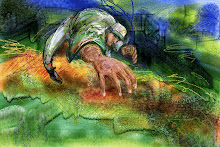• Paralysis by reflection
More reading and writing is going to become prevalent in history, science and language arts, particularly around reference texts. Narrative is emphasized less in the new standards. Many teachers are responding to the need for more language arts with reflections on learning, a facet of the new common core as well.
CCSS.ELA-Literacy.W.5.10 Write routinely over extended time frames (time for research, reflection, and revision) and shorter time frames (a single sitting or a day or two) for a range of discipline-specific tasks, purposes, and audiences.
Teachers like me, who teach classes where creative products are central to student learning, are being asked to use the reflection method to show evidence of learning, and writing. At our site, I am the only electives teacher with a degree in English, whereas most art and music, physical education as well, are not trained to assess writing. How can we balance this and keep the response to creativity authentic and meaningful? I was disappointed in my students' reflective response on a recent project, and realized, it is not them, it was my prompt to blame.
• Commentary over time
One way to build in reflection, without calling it that (students smell a reflection a mile away), is to create an opportunity to show growth over time. As students draw, or film, or work in a music editing application, stop them, and have them take a screen shot, or use a cell phone to capture their progress. Do this periodically, a couple of times a week until it becomes routine. Ask students to share their feelings about their progress with each other in small groups, showing evidence with their series of images/recordings. This elicits a more honest appraisal, and a chance for students to take risks and learn from mistakes, exercising the "grit" muscle that is all the rage in education today.
• Passion
What do you like about your work? Students enjoy being creative, and often don't get a chance to talk about their passion. Why not give students more of an opportunity to be passionate about why they are doing something creative, or recognizing the skill and creativity of their peers? Again, with evidence available over time, students can cite specific instances of where there "ah-ha" moments happen. And, of course, it doesn't have to be in writing. Recording a short video or audio statement; or interviewing a peer, or you as a teacher recording and documenting a small group discussion of laudatory commentary is equally effective.
In the image here, I was trying to incorporate both texture, and layering using Adobe Photoshop Elements working in parallel with my students. I scanned around the image looking for sections that I really liked, and took screen shots of them. I then intend to rework these three shots more with additional layers.





2 comments:
Hi Mr. Brain,
I like what you said about tapping into student's passions. Passions inspire and motivate. What better way to get students interested in learning!
-Riccardo DiMaio
Mr. Brain, I can't agree more with this assessment. As a teacher on the "periphery," I am struggling to incorporate writing in my performance-based classes. And yes, reflection is a dirty word for many students. I think I want to have students perform at regular points in their studies, and then write about what they need to improve on, or what they plan on doing next. I don't like focusing on the past, but instead turning one's attention to what I can do the next time I perform.
Post a Comment